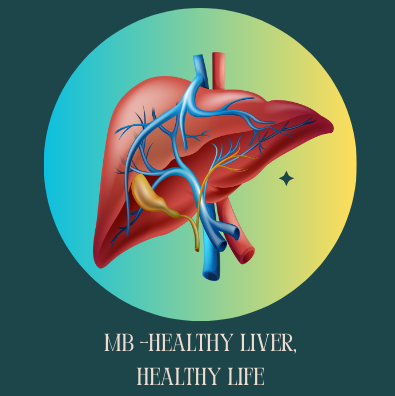Natural Remedies for Fatty Liver: A Comprehensive Guide to Reversing Fatty Liver Disease
The illness known as fatty liver disease is defined by the buildup of extra fat in the liver cells, which can cause inflammation and even harm to this important organ. It can be divided into two categories: non-alcoholic fatty liver disease (NAFLD), which is unrelated to alcohol use and is frequently associated with obesity, a poor diet, and a sedentary lifestyle, and alcoholic fatty liver disease (AFLD), which is brought on by excessive alcohol consumption. Natural therapies and lifestyle modifications can be very helpful in reversing fatty liver disease and enhancing liver health, even though medical intervention is still essential in controlling the condition. This post will discuss several natural treatments and lifestyle changes that can be made to help prevent fatty liver disease.
Natural Remedies for Fatty Liver
1. Adopt a Healthy Diet: Changing one’s diet is one of the best strategies to control and even reverse fatty liver disease. A nutritious diet can greatly lower liver fat storage and inflammation, which is important because the liver is an essential organ for metabolism.

Boost Your Intake of Fiber: Eating a diet high in fiber can help with blood sugar regulation, better digestion, and a decrease in the absorption of fat. Include fruits, vegetables, whole grains, legumes, and nuts in your regular diet. Foods high in fiber, such as broccoli, apples, barley, and oats are very good for the liver.
Select Healthy Fats: Healthy fats, such as those in avocados, almonds, olive oil, and fatty fish like salmon and mackerel, can be used to replace harmful saturated and trans fats. These foods’ omega-3 fatty acids have anti-inflammatory qualities that promote liver health.
Reduce Your Intake of Sugar and Refined Carbohydrates: Consuming too much sugar and refined carbohydrates can cause insulin resistance and the buildup of fat in the liver. Cut back on the amount of white bread, candy, baked goods, and sugary drinks you consume. Go for whole grains like quinoa and brown rice as well as natural sweeteners like honey or stevia.
Consume Lean Proteins: Make sure your diet includes lean protein sources including fish, chicken, beans, and tofu. Protein helps heal damaged liver cells and maintains liver function.
2. Engage in Regular Exercise: Exercise is crucial for maintaining a healthy weight as well as general health, which includes liver health. Frequent exercise can help lower inflammation, enhance insulin sensitivity, and reduce liver fat.

Aerobic Exercise: Five times a week, for at least thirty minutes a day, aerobic exercises such as cycling, swimming, jogging, or walking can dramatically lower the amount of fat in the liver and strengthen the heart.
Strength Training: Including strength training activities in your regimen can help you gain muscle mass, which will speed up your metabolism and encourage the burning of fat. Two to three times a week, aim for strength training sessions that focus on various muscle groups.
3. Keep a Healthy Weight: NAFLD in particular is significantly increased by obesity, which is a risk factor for the condition. Hepatic inflammation and fat can be reduced by losing extra weight.
Steady and Gradual Weight Loss: Aim for a weekly weight loss of one to two pounds. It’s important to approach weight loss with moderation and consistency, as rapid weight loss can exacerbate liver inflammation.

Body Mass Index (BMI): Balance your calorie consumption and physical exercise to maintain your BMI within a healthy range (18.5-24.9). To choose a weight loss program that is suitable for you, speak with a healthcare provider.
4. Stay Hydrated: Both general health and the health of the liver depend on getting enough water. Water facilitates digestion and helps the body eliminate impurities.
Water is important to drink. Try to get eight to ten glasses a day. Throughout the day and with meals, drinking water keeps your liver hydrated and aids in its detoxifying processes.

Herbal Teas: A few herbal teas have been shown to protect the liver, including milk thistle, dandelion, and green tea. Milk thistle and dandelion are well known for their liver-cleansing and detoxifying properties, and green tea is high in antioxidants that help lower liver fat and inflammation.
5. Include foods high in antioxidants: antioxidants are substances that assist in scavenging free radicals and lowering oxidative stress, both of which can harm liver cells. Consuming a diet high in antioxidant-rich foods can help mend and shield the liver from more harm
Berries: Rich in antioxidants called anthocyanins, blueberries, strawberries, and raspberries help lower inflammation and shield liver cells.
Turmeric: The key ingredient in turmeric, curcumin, has strong antioxidant and anti-inflammatory effects. Liver health can be promoted by including turmeric in your food or by taking a curcumin supplement.
Leafy Greens: High in vitamins, minerals, and antioxidants that support liver function are spinach, kale, and other leafy greens. These veggies also lessen the buildup of fat in the liver.
6. Steer clear of Alcohol and Toxins: One of the main causes of alcoholic fatty liver disease (AFLD) is excessive alcohol consumption. In order to stop additional liver damage, abstaining from alcohol is helpful for both AFLD patients and those with NAFLD.

Remove Alcohol: You should cut alcohol out of your diet completely if you have fatty liver disease. Alcohol use, even in moderation, can exacerbate fat storage and liver inflammation.
Minimize Toxin Exposure: Lower the amount of chemicals and toxins you are exposed to in the environment. To reduce your consumption of pesticides, abstain from smoking, use as few hazardous cleaning supplies as possible, and pick organic foods whenever possible.
7. Control Stress: Prolonged stress can lead to hormone imbalances and inflammation, which are two conditions that are detrimental to liver function. Including stress-reduction strategies into your everyday routine can help your liver and general health.
Practice Mindfulness: Yoga, deep breathing techniques, and mindfulness meditation are useful strategies for lowering stress and fostering relaxation. Set aside some time every day to practice mindfulness and mental relaxation.
Get Enough Sleep: Restorative sleep is critical to the function of the liver and general healing. Try to get between seven and nine hours of sleep every night. To enhance the quality of your sleep, develop a nightly schedule and make your sleeping environment comfy.
8. Take Into Account Herbal Supplements: A number of herbal supplements have been used historically to promote liver health and lessen the symptoms associated with fatty liver. However, since supplements may have negative effects or interfere with prescriptions, it is imperative to speak with a healthcare provider before beginning any new regimen.
One of the most well-known herbal therapies for liver health is milk thistle. It has silymarin, a substance that lessens inflammation, encourages liver regeneration, and shields liver cells from harm.
Dandelion Root: Dandelion root is well-known for its capacity to assist liver function and its detoxifying effects. It aids in bile production stimulation, which supports liver detoxification and fat digestion.
Artichoke Extract: Studies have demonstrated that artichoke extract enhances liver health and lowers the buildup of liver fat. Additionally, it possesses antioxidant qualities that guard against harm to liver cells.
9. Regular Monitoring and Medical Check-ups: Although lifestyle modifications and natural therapies can greatly enhance liver health, effective management of fatty liver disease requires regular monitoring and medical check-ups.
Liver Function Tests: Regular liver function tests aid in the assessment of liver health and the monitoring of liver enzyme levels. Increased liver enzyme levels could be a sign of liver injury or inflammation.
Ultrasound and Imaging: Imaging tests, such as MRIs or ultrasounds, can identify any abnormalities and give specific information on the amount of fat in the liver. Frequent imaging is useful in monitoring the course of fatty liver disease and evaluating the impact of dietary and lifestyle modifications.
Speak with a healthcare expert: To create a customized plan for controlling fatty liver disease, collaborate closely with a registered dietitian or other healthcare expert. They can offer advice, keep an eye on your development, and modify your treatment plan as needed.
10. Remain educated and informed: Information is powerful, and knowing what you know about fatty liver disease will help you make wise decisions regarding your well-being.
Read Reputable Sources: To keep up with the most recent findings and developments in the treatment of fatty liver disease, consult reliable medical websites, journals, and books.
Join Support Groups: Making connections with people who have gone through similar things can offer insightful conversations as well as emotional support. Online and off, support groups can provide a feeling of camaraderie and motivation.
In summary
A comprehensive strategy that incorporates dietary modifications, consistent exercise, weight control, hydration, and stress management is needed to reverse fatty liver disease. You may enhance the health of your liver and lower the chance of problems from fatty liver disease by adopting these natural therapies and lifestyle changes into your everyday routine. To get long-lasting outcomes, keep in mind that commitment and consistency are essential. Prior to making any major dietary or lifestyle changes, speak with a healthcare provider. Together, you can create a customized plan for the best possible care for your liver.
 https://analytics.google.com/analytics/web/#/analysis/p405220706
Skip to content
https://analytics.google.com/analytics/web/#/analysis/p405220706
Skip to content 

7 thoughts on “Natural Remedies for Fatty Liver: A Comprehensive Guide to Reversing Fatty Liver Disease”